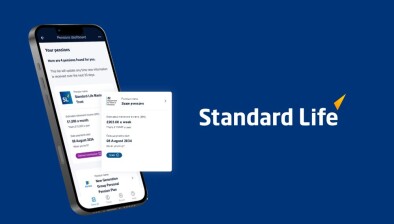Firms must implement ‘sustainable repayment arrangements’ for consumer credit and overdraft customers, says FCA

The Financial Conduct Authority (FCA) has told firms to implement sustainable repayment arrangements for consumer credit and overdraft customers who are facing financial difficulty due to the coronavirus pandemic.
The call comes as the financial watchdog confirmed measures to ensure firms provide tailored support for users of certain consumer credit and overdraft customers affected by COVID-19.
The guidance will cover users of credit cards and other revolving credit (store card and catalogue credit), personal loans, motor finance, buy-now-pay-later (BNPL), rent-to-own (RTO), pawnbroking and high-cost short-term credit (HCSTC) products and overdrafts.
The FCA expects firms to recognise the uncertainties and challenges that many customers will face in the coming months as the crisis develops, and provide tailored support which reflects their individual circumstances.
It has also told businesses to work with customers approaching the end of a payment deferral to provide support before they miss payments.
Firms must be flexible and employ a full range of shorter and longer-term options to support their customers and minimise stress and anxiety experienced by customers in financial difficulty.
At the same time, they must give customers time and opportunity to repay and do not pressurise them into repaying their debt within an unreasonably short period of time.
The FCA has said firms must put in place sustainable repayment arrangements which are affordable and take account of their customers’ wider financial situation including their other debts and essential living expenses.
Firms must also prevent customers’ balances from escalating once they have put in place a repayment arrangement by suspending, reducing, waiving or cancelling any interest, fees or charges necessary to make that happen.
Additionally, the FCA has confirmed that it expects firms to contact overdraft customers who have received temporary support to determine if they still require assistance. Where a customer needs further support or where a newly affected customer gets in touch asking for help, firms should provide tailored support such as reducing or waiving interest, agreeing a programme of staged reductions in the overdraft limit, or supporting customers to reduce their overdraft usage by transferring the debt. The guidance sets out when these options may be appropriate.
Christopher Woolard, interim chief executive at the FCA, said: “For those who can restart payments, it is in their best interests to do so. However, for those who are still facing payment difficulty, or are newly in difficulty, as a result of coronavirus, we expect firms to offer a tailored package of support taking into account the ongoing situation and local or national responses to the crisis. There should be no ‘one size fits all’ approach taken by firms to help consumers get back on track.”
The measures apply both to consumers who have benefited from support under the current guidance and continue to face financial difficulties, as well as those whose financial situation may be newly affected by coronavirus after the current guidance ends on October 31.






